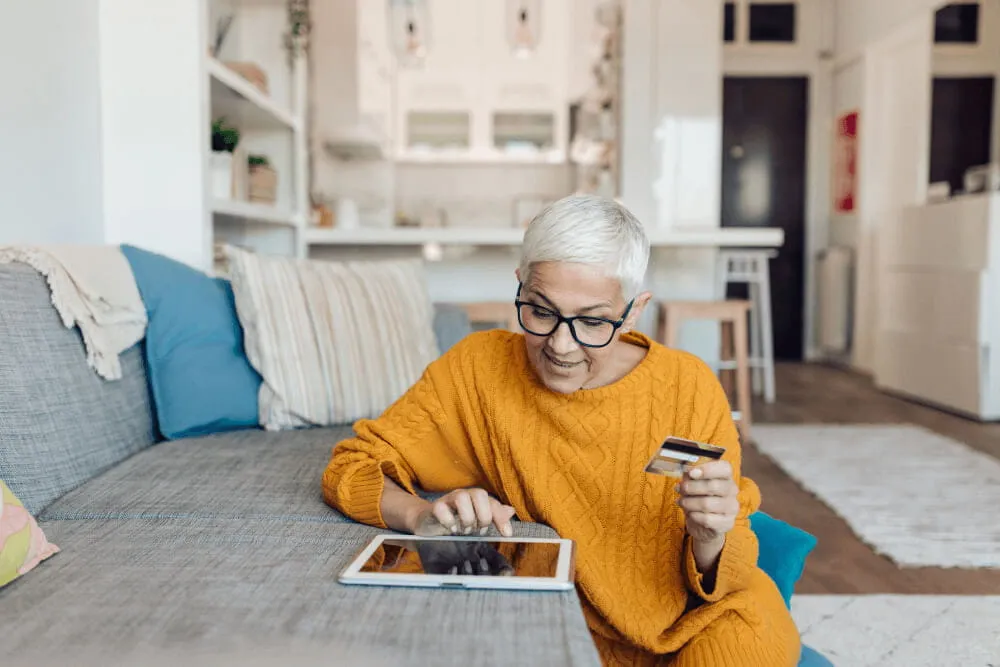02-03-2021
5 min read
Spend or save – what do you prefer?

Team Atom
It could be a shiny new phone, a sparkly new dress, or an ultra-powerful new drill that will “definitely help me fix that wonky shelf” – we’ve all been there. Impulse buying is like a voice inside your head “do it, buy it, you deserve it, just one quick swipe of your card and it’s yours!”
Those little purchases give us a happy rush. But how long does that happiness last? To better understand this, Atom carried out a survey into the psychology of spending vs saving, and gauged the opinion of 2,000 Brits. We wanted to determine if shopping really can make us happy.
So what would you do with £1,000 – save or spend?
Be honest, which do you think would bring you the most happiness? Our survey told us that 75% of Brits actually believe that saving £1,000 would make them happier than spending £1,000.
But doesn’t retail therapy make you happy?
Our findings show that happiness levels only increased by 29% through shopping. In fact, 69% of self-confessed ‘spenders’ even experienced post-spending guilt.
So how do you curb your spending itch, an itch that you’ve no doubt wanted to scratch relentlessly in the groundhog days of the Covid 19 pandemic? Well hopefully by following the 5 handy hints we’ve put together along with Mario Weick, a Behavioural Psychologist at Durham University.
1. Focus on a future goal
If you struggle to avoid temptation, one of the best ways to control your urges is to focus on a future goal that saving your money could lead to, whether that’s saving up for driving lessons or taking a step onto the property ladder.
Mario comments: “The benefits of saving money materialise over time, so focusing on a future goal can make it easier to save money, whereas focusing on the here and now may encourage spending.”
2. Avoid shopping when tired or under the influence of alcohol
Mario warns: “Impulsive behaviour can be triggered by things such as tiredness, alcohol, or information overload.”
Browsing your favourite online sites when you’re super tired at the end of a stressful week of work, or after a couple of glasses of wine, can lead you to make purchases without fully thinking them through.
Be mindful of only shopping when you feel fully alert and rested and for added benefit, get into the habit of taking the time to mull a purchase over for at least a few hours before heading to the virtual checkout.
3. Reduce your exposure to temptation
Mario comments: “It may sound simplistic, but one way to alleviate the pressure is to reduce one’s exposure and avoid the situation, if possible. Something like going for a walk could be a good idea.”
This is further backed up by Atom’s experiment, which found that shoppers got the same physical ‘high’ from taking a brisk walk, as they did from hitting the checkout button.
If you’re tempted to make a large purchase, just a 5 minute walk in the fresh air or a ten minute workout video could curb your spending. If you’re still keen on making the purchase when your heart rate returns to neutral, then it’s unlikely that your body is just craving the endorphins that shopping can bring.
4. Drop the ‘all or nothing’ attitude
When you’re trying to limit your spending, you can feel like going cold-turkey is the only answer, this is especially true in January after spending heavily at Christmas. However, evidence suggests that this ‘all or nothing’ attitude is actually harder to maintain than a split-budget approach.
Mario adds: “Saving some income, while giving oneself a spending allowance really does appear to be the golden formula.”
“A healthy balance between restraint and allowing oneself some pleasure and spontaneity is an optimal strategy to boost happiness.”
5. Spend for long-term happiness
Mario comments: “The purchasing experience is designed to give us a quick kick, with products to match that often emphasise fleeting pleasures.
“Spending money is more likely to promote happiness when the purchase is intrinsically rewarding, e.g. life experiences, personal development or on gifts that nurture meaningful relationships, rather than those driven by superficial motives.”
Take a bit of time to work out what you want to gain from your purchases. Although treating yourself can give you a little boost of joy, make sure you’re not only shopping for the sake of it, or to experience the excitement of grabbing a ‘bargain’.
Having a chance to reflect on whether your purchase will bring you long-term happiness will give the brain time to digest properly and lower the risk of spending on things that only have a short-term impact.
Look ahead with confidence
If the pandemic has taught us one financial lesson, it’s the importance of being prepared. This past year has been a terrifying roller coaster at times, and although there appears to be light at the end of the tunnel, we’re sure there’ll be a few twists and turns to come. But by following the handy hints we’ve given you, perhaps those days of impulse buying can be put behind you, and you can save for something truly special.
Methodologies
Survey
The research was conducted by Censuswide on behalf of Atom Bank, with 2,007 participants from a nationally representative sample of UK adults aged 16+ across the UK between 09.10.2020 - 12.10.2020.
Experiment
All data based on the following: A 15 participant experiment of 8 men and 7 women between the ages of 18-63 conducted independently on behalf of Atom Bank. Each participant was given a £100 voucher for a favourite online store of their choice and equipped with a heart rate monitor. Participants resting heart rates were taken just before the shopping experiment, during the 1 hour online shopping period and during a 5 minute brisk walk for comparison purposes. Participants also self-reported their happiness levels before, during the experiment (at the point of checkout), and 1 hour post-experiment to compare these psychological metrics to the heart rate data. Participants were also asked to identify themselves as a ‘spender’ and ‘saver’ with data gathered according to these two groups.
